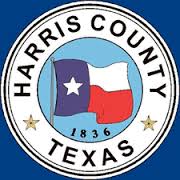Harris County on Tuesday [unveiled] a new plan to address a funding gap for its flood bond program, which will rely more heavily on diverted toll road revenue instead of federal aid that may never arrive.
The goal is to give the county greater control over its own flood control future instead of waiting on unreliable state and federal partners. To that end, the Commissioners Court also is expected to approve a new, permanent fund for flood control purposes and give priority to the most vulnerable areas to receive aid from it.
The plan still leaves approved projects $950 million short, however, raising the possibility that a new bond or flood control tax increases may be needed in the future to pay for all planned projects, according to budget office documents. Additional money would not be needed for about five years, according to the budget office.
Precinct 3 Commissioner Tom Ramsey said the fund, called the Flood Resilience Trust, is a good idea because it allows the county to stockpile money for projects in advance.
“It allows the county to, in a very effective way, set aside money every year, and that money will be there when they make any federal or state applications,” Ramsey said. “With a trust, we can move forward with a project while anticipating those (matching) dollars will come in.”
[…]
Because the Harris County Flood Control District purposefully underfunded some bond projects in anticipation of receiving federal aid, the snub resulted in lopsided spending across the county’s 23 watersheds. In March, the county announced that some of the watersheds with the wealthiest communities, such as White Oak and Buffalo bayous, had their projects close to fully funded.
Watersheds with some of the county’s poorest neighborhoods, such as Halls and Greens bayous, had less than half the necessary dollars. That angered the commissioners who represent those areas, Rodney Ellis and Adrian Garcia, because the court agreed in proposing the bond three summers ago that funds would be spent equitably.
The new plan aims to fix that. First, it would direct Harris County Toll Road Authority revenue — a lump sum of $230 million plus $40 million annually — to a new Flood Resilience Trust. This account would be used to plug funding holes in projects where federal aid failed to arrive.
Projects would be eligible based on their scores on the county’s prioritization framework, which considers factors such as how many structures would benefit from a project, how frequently a target area has flooded and the socioeconomic makeup of the residents there. This “worst first” framework, approved in 2019, initially dictated only the order in which projects were started.
The two Republican commissioners on the court, Jack Cagle and Steve Radack, voted against the equity language; Cagle said he saw no connection between social factors such as education or poverty and flood risk.
The county budget office estimates that if no other federal or state aid comes, the Flood Resilience Trust will be able to make up bond project shortfalls until about 2026. After that, the commissioners may need to issue a new bond to cover the remaining costs.
See here for the background. This was a preview story, published before the Commissioners Court meeting on Tuesday. I presume this was passed, but the meeting ran late, and so as of Wednesday afternoon there wasn’t an updated version yet. I think this is a reasonable plan, and if it can buy them five years (and hopefully some real progress in getting projects done) before having to do another bond, then that’s a good outcome and the odds of having that bond passed will improve. It also allows for some time to un-screw the federal fund distribution, which would make all of this a lot simpler. For now, this will do.


I can vote for two people in the commissioner’s court; one is a Republican the other is Hidalgo. I am not happy with her and how she neglected the low-income areas when it came to flooding projects to first commence with the Republican areas.
She may not take money from construction companies or pacs, but lawyers are giving in large amounts.